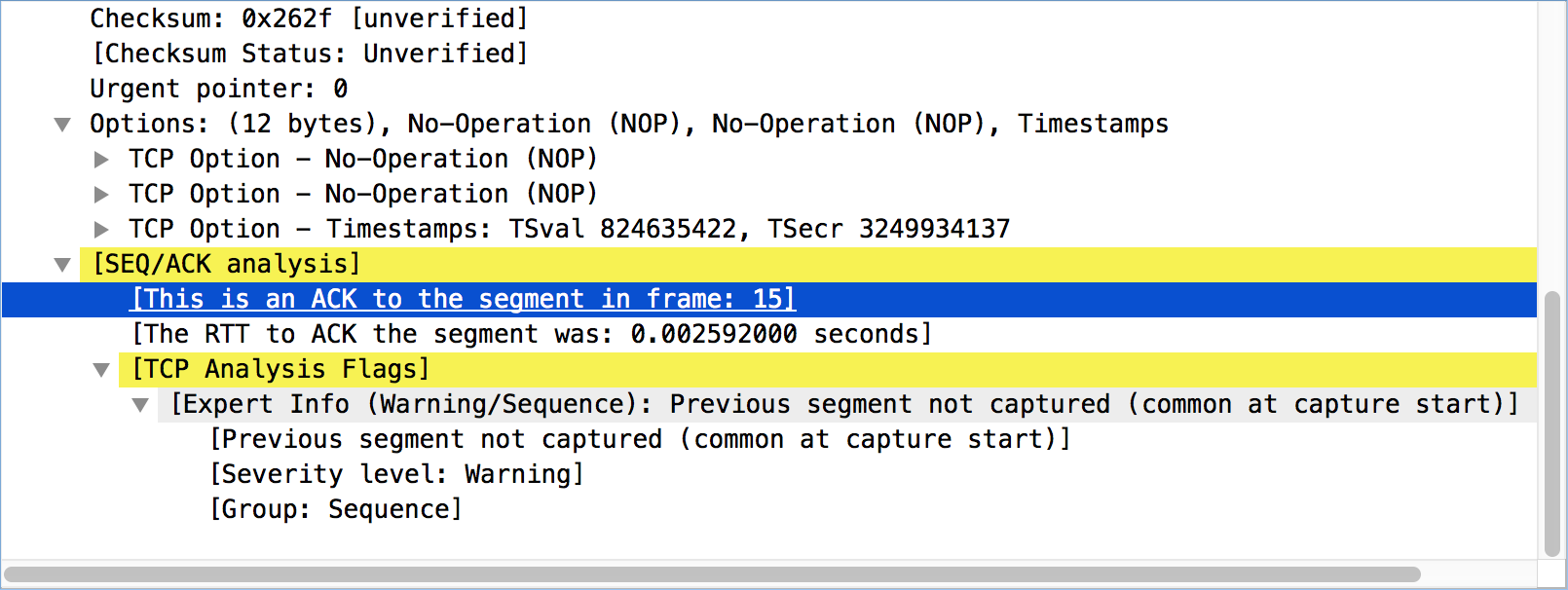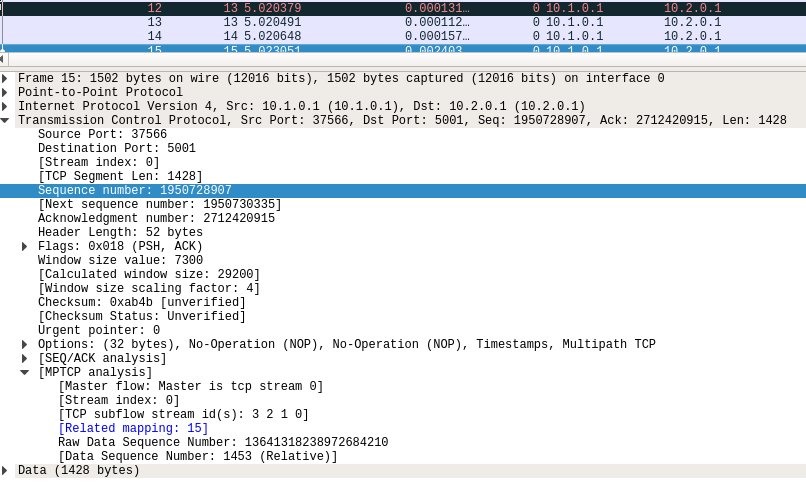

Once I ran that command, all of the connectivity problems I'd had to the appliance got cleared up.

I configured the primary interface from its default of 1500 to 1440 using this command: It had enough of a linux shell to allow me to adjust the MTU on the ethernet interface via the CLI. To verify that the MTU size is the real issue I performed an experiment on the appliance I was troubleshooting. I have a call with the appliance maker tomorrow to let them know- seems like their appliance should be able to respect this message! For some reason the appliance does not respect this request. One thing that this traffic does not do a great job of showing is that the Don't Fragment flag is set on the IP Packet which is what causes the router to come back and tell the appliance to fragment the message. A tcpdump trace taken on a Steelhead appliance and opened in Wireshark shows up with TCP Retransmission with the original packet being identical to the.
VIEW TCP RETRANSMISSION WIRESHARK CODE
Drilling into the ICMP traffic further shows a Type 3, Code 4 message which indicates that the next hop has a maximum MTU of 1446. This traffic shows that a packet of length 1514 bytes is not being allowed to pass through the gateway.
VIEW TCP RETRANSMISSION WIRESHARK CRACK
Thank goodness for the SharkTap! Here's what I saw on the 'other side' which helped me crack this case: The place that seemed to cause the most problems most consistently involves the certificate passing piece of TLS negotiation.Įventually I was able to get a packet capture from the specialized network appliance on the other side of the connection. Previously in the packet trace I can see that the TCP 3-way handshake succeeded (and succeeds EVERY time a connection attempt was made). The above traffic is filtered to a window that shows the error state. I recently had a fault fixed and I noticed on the Pre fix GEA Test Detail that my profile was set to 0.128M-80M Downstream 5dB, Retransmission High - 0. Appliances that lack a native ability to capture traffic / PCAP files contributes to less direct troubleshooting paths.įor reference, here is an image that shows the type of traffic I was seeing on a system attempting to initiate a secure session: I am one of those people who actually reads the release notes, so I was very excited to see that Wireshark 1.10.1 now flags a retransmitted TCP synchronize. I'm noticing a lot of TCP retransmission, DUP Ack, Spurious & TCP Out-of-Order when running Wireshark. This issue took longer to troubleshoot than I would have liked due to the specialized nature of endpoints involved. The core problem was an MTU mis-match between our gigabit network and our 100-megabit VPN tunnel.

I performed a comprehensive analysis of our networking infrastructure and router configurations and captured PCAP files to gather enough data to root cause the problem. Some machines were unable to communicate at all while other machines could occasionally and sporadically establish a connection that would fail at inopportune times. Not sure if it is significant, but connection is on port 443.We had a mysterious issue in our network that caused certain SSH sessions and HTTPS/TLS sessions to fail intermittently. When I tried to catch requests from one specific IP that failed, I got only TCP retransmission (so I don't see the request itself). This is how it looks for packets that are received:

One weird thing is that on the wireshark recording we don't see the http requests from the users. The cloud provider where the server is hosted doesn't have SSD disks, and we are aware that this can be an issue. The server cpu is high (50-100%), mostly because of the firebird database. Some of the http packets are passed ok, but some are getting these retransmission, and I suspect that this is causing the timeout. When opening devtools->network tab, we see that the packets are droped.įor debugging this issue, we recorded wireshark traffic on the server, and we see a lot of retransmission events. Tom Brady brushed off any concerns about a potential arm injury in the Tampa Bay Buccaneers’ 41-31 loss to the Kansas City Chiefs on Sunday night. Unfortunately, we got to a point were we are getting timeouts when users try to make requests to the server. We have an product based on a 3rd party application, running on an apache server connected to a firebird (v2.5.3) database.


 0 kommentar(er)
0 kommentar(er)
